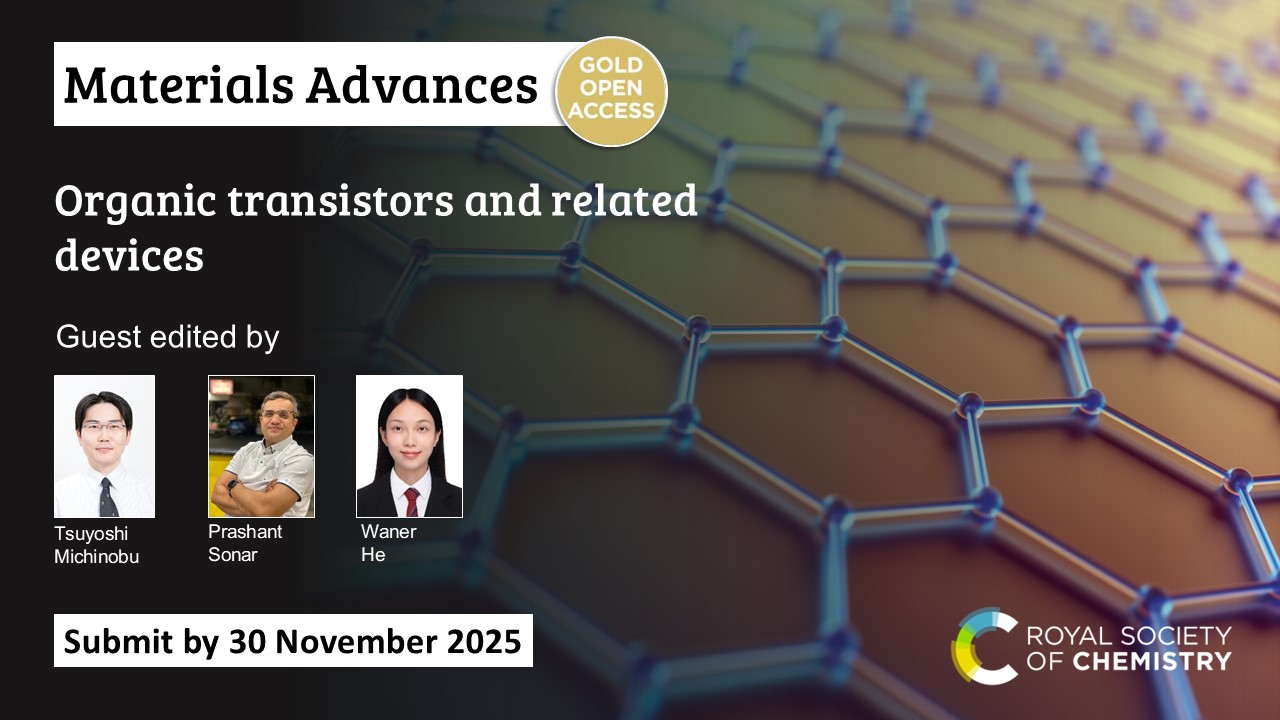We are delighted to announce an open call for papers to our new themed collection in Materials Advances focusing on organic transistors!
Guest Editors: Professor Tsuyoshi Michinobu (Institute of Science Tokyo, Japan), Professor Prashant Sonar (Queensland University of Technology, Australia), Dr. Waner He (Institute of Science Tokyo, Japan)
You are welcome to submit an article within the scope before 30 November 2025
If you are interested in contributing to this collection, please get in touch with the Editorial Office by email.
The Guest Editors aim to highlight recent advances in organic transistors and related devices, with a particular focus on organic field-effect transistors (OFETs), organic thin-film transistors (OTFTs), and organic electrochemical transistors (OECTs). The collection will explore technological and material innovations that are propelling the development of high-performance, flexible, wearable, and environmentally sustainable electronics. Topics of interest include molecular design strategies, materials synthesis, charge transport, and device engineering. The collection also welcomes contributions on emerging applications such as sensing, logic circuits, neuromorphic computing, and biomedical diagnostics. By bridging material innovation with device performance, this issue aims to accelerate the practical implementation of next-generation organic electronics and foster interdisciplinary collaboration across physics, chemistry, and materials science.
We are happy to consider both review articles and primary research work.
Publishing open access with RSC journals unlocks the full potential of your research – bringing increased visibility, wider readership and higher citation potential to your work. As a not-for-profit organisation serving the chemical sciences community, we ensure that our article processing charge (APC) remains the most competitive of major publishers. More details can be found here and the APC for Materials Advances is £2100. You can also use our journal finder tool to check if your institution currently has an agreement with the RSC that may entitle you to a discount of the APC.












